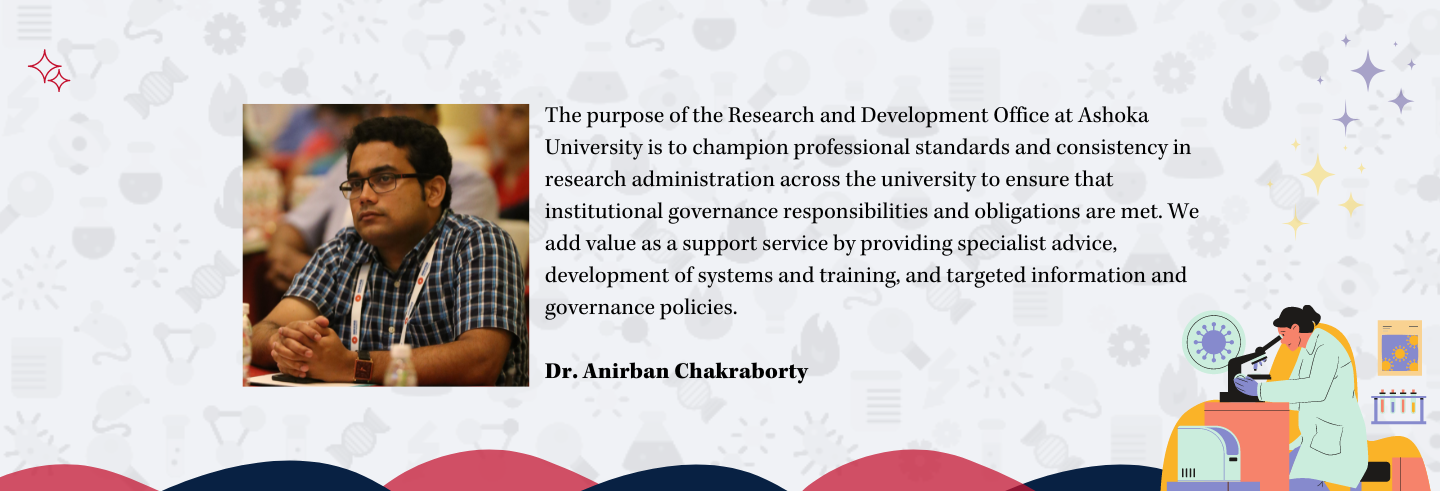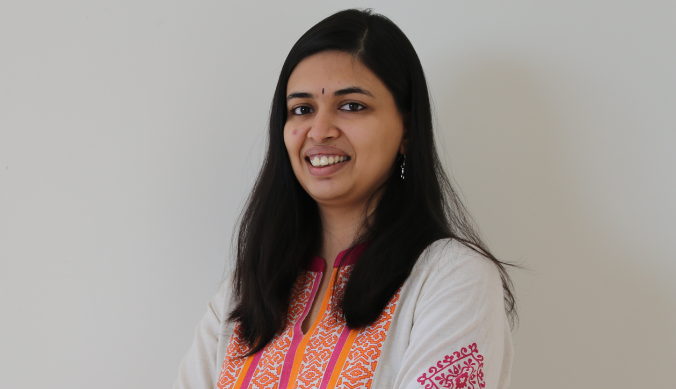Rethinking Research Management in India: The Case of Ashoka
The landscape in which research grants and contracts are won has become increasingly competitive and global in nature. University research offices can not remain static and must be receptive to various changes, writes Dr. Anirban Chakraborty as he underlines the growing significance of the Research and Development Office at Ashoka University
As a developing nation, India is consistently progressing in education, research and innovation. In the last decade, we have seen a massive expansion of science, technology, and higher education enterprises in this country. While the higher education and research sectors have expanded tremendously in terms of enrollment, the country has failed to produce an adequate number of world-class universities and research institutes.
Researchers have analysed challenges like demand-supply gap, lack of quality, inadequate management system and infrastructure, among other factors. Worldwide higher education and research policies have been transformed by various processes that operate in a constant flux of globalisation.
The climate for research funding is invariably determined by the national and international economic situation, which continues to be challenging. Recent surveys and reports have highlighted that research management systems in most Indian institutes and universities lack consistency of structures and suffer from lack of sharing good practices and networking.
All of this demands proper research management systems in Indian universities, particularly those that are research-intensive, to offer support to researchers and represent institutional needs. The role of research offices in these ‘stormy seas’ is more important than ever before. A few Indian institutes are beginning to set up dedicated research offices in their system, a relatively recent development in the Indian research management system.
A special category of research professionals trained in research management and administration is essential for these roles. They should not only excel in managing day-to-day activities but also be at the forefront of planning, executing, assessing and communicating (to the policymakers, finance people and other stockholders) various educational and research activities.
In 2018, Ashoka University established the Research and Development Office (RDO), intending to build the best possible research management system to support Ashoka faculty and researchers and be a good example for the country’s research ecosystem at large.
As a research university, Ashoka has four broad areas of disciplines; arts and humanities, social sciences, economics and basic sciences. The amalgam of basic sciences in conjunction with humanities, economics and social sciences has created a vibrant environment leading to interdisciplinary research avenues. Research at the university is driven mainly by faculty and researchers from all departments/centres who have a variety of interests. Some thrust areas are bound traditionally within the same disciplines, while others are compatible with new and evolving specialised areas. Although Ashoka is a young university, the faculty and researchers are very productive, especially when compared to their peers.
RDO provides dedicated centralised support to faculty and researchers towards academic, applied and translational research activities. Currently, the office is managed through the following four functional verticals:
Grant Management: We assist the faculty and researchers in seeking funding from international and domestic funding agencies to meet requirements for research. We work closely with the faculty by helping them with pre-funding and post-funding management.
Research Infrastructure Management: We help maintain research facilities and run them as university-level facilities to maximise their utility and improve interactions between faculty and departments.
Scholar Management: We assist in recruiting research staff and Ph.D. scholars across all departments and ensure success in their research at the university.
Academic Communication: We aim to bridge the gap between science and society and create an impact on the university’s research by making it accessible to all. The focus is also on effective liaison between various offices for the smooth running of outreach and fundraising events.
The purpose of the Research and Development Office at Ashoka University is to champion professional standards and consistency in research administration across the university to ensure that institutional governance responsibilities and obligations are met. We add value as a support service by providing specialist advice, development of systems and training, and targeted information and governance policies.
In 2021 we received a grant from DBT/Wellcome Trust India Alliance to build a new sub-vertical at RDO related to research grants advising. The Centre for Civil Society’s recent report (2022) highlighted Ashoka RDO as an interesting case study for the various roles a university research office can provide beyond the traditional ones envisioned in the Indian scenario. Apart from its own operations through the verticals, the office has also started training workshops and facilitating industry interactions.
Developing and sustaining a vibrant research portfolio is not straightforward. The landscape in which grants and contracts are won has become increasingly competitive and global in nature. University research offices can not remain static and must be receptive to various changes.
The case of Ashoka RDO delineates the current debate governing the promotion of proper research management systems in Indian universities in a globalised world. It is essential to motivate Indian research communities to develop a sound management support base for its researchers, without which the time and funds invested in research are not optimally utilised and risk future growth.
(Dr. Anirban Chakraborty is Assistant Vice President – Research & Academic Development at Ashoka University)













